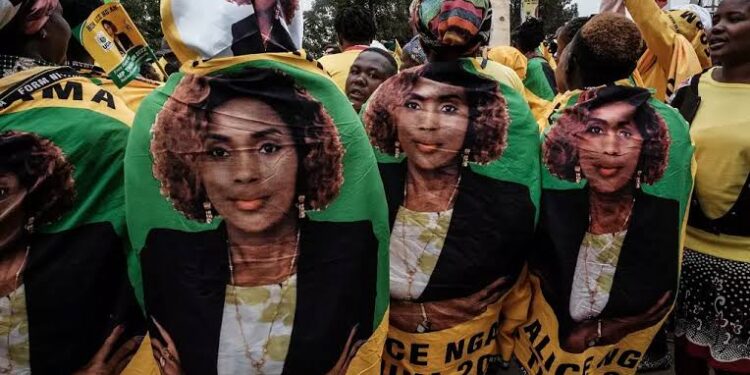The International Federation for Human Rights (FIDH) and the Kenya Human Rights Commission (KHRC) have cautioned against violence against women as Kenya elects new leader on Tuesday. They say women have been victims of attacks, harassment and even rape during the election campaign
The campaign “has been marred by violence against women” despite warnings and promises by the government to tackle the problem, the International Federation for Human Rights (FIDH) and the NGO Kenya Human Rights Commission (KHRC) said in a statement.
They listed cases of rape during the campaign, including four cases on the sidelines of a meeting finally cancelled on June 19.
Kenya is holding its general elections on Tuesday, which will see 22.1 million voters choose their president, as well as their members of parliament, governors and some 1,500 local elected officials.
Women candidates – three of whom are running as running mates for presidential candidates – have been “confronted with sexist and aggressive language, gender stereotyping, online gender abuse and sexual harassment,” the two organizations say.
They believe that “these tactics are deliberately used to prevent women politicians or women candidates from participating in politics.
Elections in Kenya have repeatedly resulted in outbreaks of violence, including gender-based and sexual violence.
During the 2007-08 post-election crisis, which left more than 1,100 people dead, at least 900 people were sexually assaulted, including gang rape and castration, according to human rights groups.
During the violence following the 2017 election, sexual violence against women and girls was widespread, according to KHRC, which documented 201 cases of election-related sexual and gender-based violence.
More than half of the attacks involved security forces and “to date, no action has been taken by the government to ensure justice for victims,” the statement said.
“The government’s failure to curb the targeting of women in politics and to hold perpetrators accountable has allowed the violence to recur,” said FIDH Vice President Sheila Muwanga.



































